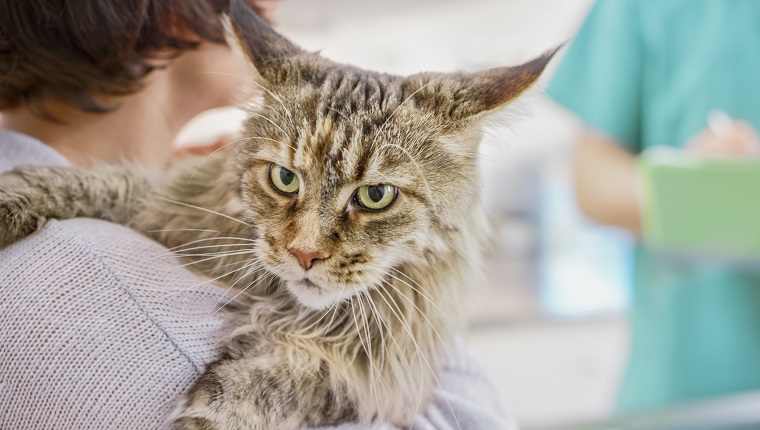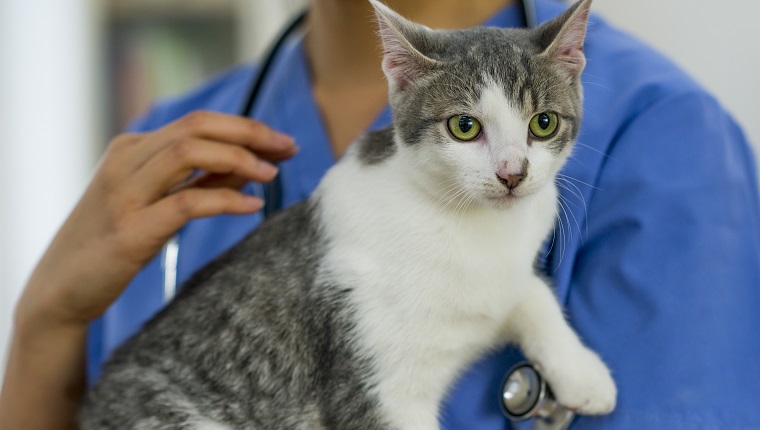Cushing’s disease in cats, also known by the medical term hyperadrenocorticism, is a condition where the adrenal gland ends up producing too much of the hormone cortisol. It usually results from the presence of tumors in the pituitary or outer adrenal glands.
Thankfully, this disease is considered to be relatively rare in cats; although, female cats who are middle-aged or older seem to have a higher likelihood of developing the condition. In many cases, cats suffering from diabetes also have a higher risk.
If you see signs that your cat might be suffering from this disease, consult your veterinarian for a proper diagnosis and course of treatment. Here’s what you should know about the symptoms, causes, and treatments of Cushing’s disease in cats.
Symptoms Of Cushing’s Disease In Cats
Cushing’s disease in cats can result in a wide range of symptoms. Some of the most common symptoms include:
- Visibly gaining or losing weight
- Repeated urinary tract infections
- Urinating more than usual
- Eating more than usual
- Drinking more water than usual
- Vomiting
- Losing hair
- Diarrhea
- Tips of the ears seeming to curl
Causes Of Cushing’s Disease In Cats

Cushing’s disease in cats is a condition that is often attributed to the presence of tumors in the cat’s adrenal and pituitary glands.
Additionally, the age of a cat can be a factor in developing the disease, with middle-aged and senior cats most at risk.
Veterinary Treatments
If you suspect that your kitty has developed Cushing’s disease, your veterinarian will want to carry out a full physical examination.
They’ll carry out a complete range of laboratory tests, including blood and urine analysis, plus hormone tests to check for levels of cortisol. Additionally, they may use X-rays and ultrasounds to confirm a diagnosis.
When it comes to treatment, vets often suggest the surgical removal of any glands that are affecting the condition. If your vet opts for this process, your cat will need to stay on a course of medication for the rest of their life.
As ever, if your vet prescribes your cat any medicine, it’s vital that you stick to the precise dosage and frequency instructions and complete the full course of medication.
Has your cat developed Cushing’s disease? How do you manage the condition and keep it under control? Tell us all about it in the comments below.









